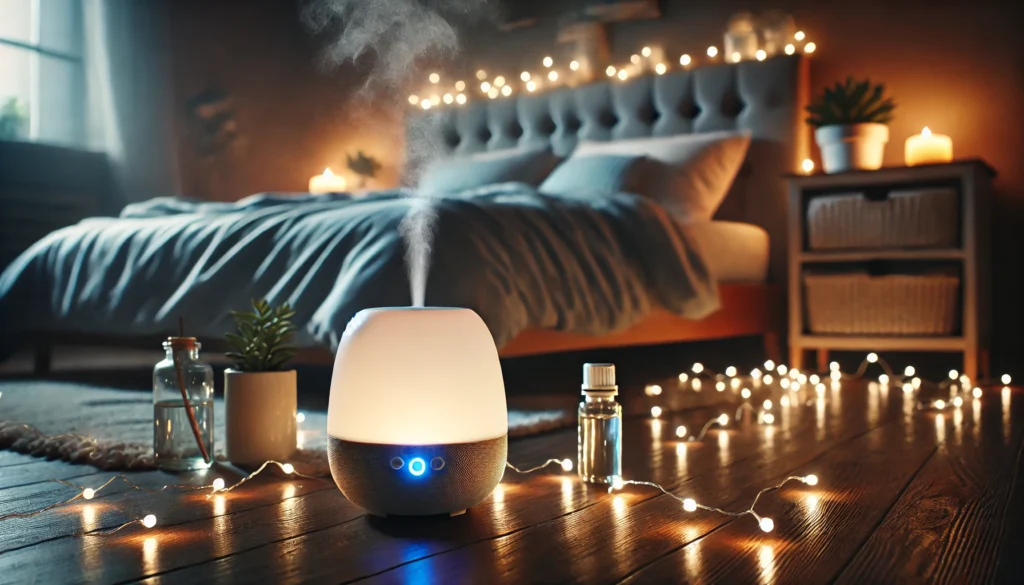Anxiety is a prevalent yet debilitating condition that impacts millions globally. Addressing it requires not just an understanding of its fundamental mechanisms but also practical strategies that can be seamlessly integrated into daily life. Whether you’re a health and wellness coach, a science journalist, or a biohacker, gaining deeper insights into anxiety and the available coping techniques can empower you to assist yourself and others. In this expanded article, we will delve into comprehensive anxiety relief methods, explore scientific insights, and provide practical advice on managing and reducing anxiety.
You may also like: Effective Stress Management Techniques for Daily Life
Understanding Anxiety and Its Impact
Anxiety goes beyond fleeting worry or fear. It manifests as a persistent sense of apprehension or dread, interfering with daily activities, relationships, and overall well-being. From a biological perspective, anxiety is linked to the brain’s fight-or-flight response, a survival mechanism that can become maladaptive in the context of modern life.
The Science Behind Anxiety
Neurotransmitter Imbalances
The brain’s chemistry plays a crucial role in anxiety. Neurotransmitters like serotonin, dopamine, and norepinephrine are vital for mood regulation. An imbalance in these chemicals can lead to heightened emotional responses and a constant state of alertness, contributing to anxiety disorders. Understanding these imbalances offers a pathway to targeted treatments, such as medication or lifestyle changes, aimed at restoring balance.
The Role of the Amygdala
The amygdala, a small but powerful part of the brain, is pivotal in processing emotions and fear responses. An overactive amygdala can result in an exaggerated response to perceived threats, fueling anxiety. Recent research suggests that therapies focused on calming the amygdala, such as mindfulness and exposure therapy, can be effective in reducing anxiety symptoms.
Genetic and Environmental Influences
Genetic predispositions combined with environmental factors can significantly influence anxiety levels. Studies indicate that individuals with a family history of anxiety may be more susceptible. However, environmental factors such as trauma, stress, and lifestyle choices also play a critical role. Understanding these influences helps in crafting personalized coping strategies that address both genetic and environmental components.
Historical Context and Current Trends
Historical Misunderstandings
Historically, anxiety was often misunderstood and stigmatized, leading to inadequate treatment and support. It was frequently dismissed as mere nervousness or weakness. This misconception prevented many from seeking help and hindered the development of effective treatments.
The Rise of Mental Health Awareness
In recent decades, there has been a paradigm shift towards recognizing anxiety as a legitimate health concern. Increased awareness and advocacy have led to reduced stigma, encouraging more individuals to seek help. This shift has also spurred research, resulting in better understanding and management of anxiety.
Integrative and Personalized Approaches
The current trend in anxiety management is moving towards integrative and personalized approaches. These strategies combine traditional methods, such as therapy and medication, with modern techniques, like digital tools and holistic practices. This trend reflects an understanding that anxiety is multifaceted and requires a comprehensive approach tailored to individual needs.
Practical Coping Techniques for Anxiety Relief
Understanding anxiety is crucial, but knowing how to cope with it effectively is equally important. In this section, we will explore practical techniques that can be employed to manage anxiety in both acute and chronic situations.
Breathing Exercises and Mindfulness
Diaphragmatic Breathing
Diaphragmatic breathing, also known as deep breathing, is a powerful tool for calming the nervous system. This technique involves inhaling deeply through the nose, allowing the diaphragm to expand fully, and exhaling slowly. Practicing diaphragmatic breathing regularly can reduce stress and anxiety levels by promoting relaxation and decreasing the heart rate.

Box Breathing Technique
Box breathing is a simple yet effective method to manage anxiety. It involves inhaling for a count of four, holding the breath for four counts, exhaling for four counts, and pausing for four counts before repeating. This technique helps regulate the autonomic nervous system, promoting a sense of calm and control.
Mindfulness Meditation
Mindfulness meditation focuses on being present in the moment without judgment. Regular practice has been shown to lower anxiety levels and improve emotional regulation. Guided meditation sessions, available through apps like Headspace and Calm, provide structured opportunities to practice mindfulness, helping individuals develop resilience against anxiety.
Cognitive Behavioral Techniques
Identifying Negative Thought Patterns
Cognitive Behavioral Therapy (CBT) emphasizes identifying and changing negative thought patterns. By recognizing distorted thinking, individuals can challenge and reframe these thoughts, reducing their impact on emotions and behaviors. Self-help CBT resources, such as books and online courses, offer practical exercises for those unable to access therapy.
Behavioral Activation
Behavioral activation is a CBT strategy that encourages engagement in positive activities to counteract anxiety. By identifying enjoyable activities and scheduling them into daily routines, individuals can break the cycle of avoidance and inactivity often associated with anxiety. This approach fosters a sense of achievement and improves mood.
Exposure Therapy
Exposure therapy involves gradually confronting feared situations or objects in a controlled manner. This technique helps desensitize individuals to anxiety triggers, reducing their power over time. Practicing exposure therapy with the guidance of a therapist or using structured self-help resources can significantly alleviate anxiety symptoms.
Lifestyle Modifications
The Role of Exercise
Regular physical activity is a cornerstone in managing anxiety. Exercise boosts endorphin and serotonin production, improving mood and reducing stress. Incorporating activities like walking, running, or yoga into daily routines can have a profound impact on anxiety levels, promoting overall well-being.
Nutrition and Anxiety
A balanced diet rich in omega-3 fatty acids, whole grains, and lean proteins supports mental health. Nutrients like magnesium and vitamin B complex play a role in regulating mood and reducing anxiety. Making conscious dietary choices can enhance physical health and contribute to anxiety management.
Importance of Sleep
Adequate sleep is essential for mental health. Sleep deprivation can exacerbate anxiety symptoms, while restorative sleep supports emotional regulation. Establishing a consistent sleep routine, limiting screen time before bed, and creating a relaxing sleep environment can improve sleep quality and reduce anxiety.
In-the-Moment Anxiety Skills
Grounding Techniques
Grounding techniques help individuals anchor themselves in the present moment, disrupting the cycle of anxious thoughts. Techniques such as the 5-4-3-2-1 exercise, which involves identifying five things you can see, four you can touch, three you can hear, two you can smell, and one you can taste, can provide immediate relief.
Sensory Engagement
Engaging the senses through activities like touching a textured object, listening to calming music, or savoring the taste of a favorite food can be soothing. These activities shift focus away from anxiety and towards the present, promoting a sense of calm and control.
Distraction and Redirection
Distraction techniques involve redirecting attention away from anxiety-provoking thoughts. Engaging in a hobby, solving a puzzle, or starting a conversation can provide temporary relief, allowing the mind to reset and reduce anxiety.
Technological Tools for Anxiety Management
Wearable Devices and Apps
Wearable devices, such as heart rate monitors and stress trackers, offer real-time feedback on stress levels. These tools can help individuals identify anxiety triggers and monitor progress over time. Additionally, mobile apps provide guided exercises and resources for managing anxiety on-the-go.

Virtual Reality Therapy
Virtual reality (VR) therapy is an emerging field that offers immersive environments to help users confront and manage their anxiety safely. By simulating anxiety-provoking situations, VR therapy allows individuals to practice coping skills in a controlled setting, enhancing their ability to handle real-life challenges.
Online Support Communities
Online support communities provide a platform for individuals to connect, share experiences, and access resources. These communities offer a sense of belonging and support, reducing the isolation often associated with anxiety.
Integrating Coping Skills into Daily Life
Developing a routine that incorporates these coping techniques is essential for long-term anxiety management. Here are some tips to seamlessly integrate anxiety relief strategies into your daily life:
Prioritizing Self-Care
Designate specific times each day for activities that promote relaxation and well-being, such as yoga, meditation, or a hobby you enjoy. Prioritizing self-care ensures that these practices become a regular part of your routine, supporting mental health and reducing anxiety over time.
Building a Support Network
Create a support network by reaching out to friends, family, or support groups who understand and can provide encouragement and guidance. Having a strong support system can offer comfort and motivation, making it easier to navigate challenges and implement coping strategies.
Tracking and Reflecting on Progress
Use a journal or mobile app to record your anxiety levels and the effectiveness of different coping strategies. Regularly reviewing this information can help identify patterns, track progress, and make informed adjustments to your approach.
Staying Informed and Adaptive
Continuously educate yourself about anxiety and emerging treatment options. Staying informed empowers you to make informed decisions about your mental health and adapt your strategies as needed. Embracing a mindset of learning and growth can enhance resilience and support long-term anxiety management.
Looking Ahead: The Future of Anxiety Relief
As our understanding of anxiety deepens, new and innovative solutions will continue to emerge. Advances in neuroscience, genetics, and technology hold the promise of more personalized and effective treatments for anxiety.
The Promise of Neuroscience
Neuroscientific research is uncovering new insights into the brain’s role in anxiety. These discoveries pave the way for targeted interventions, such as neurofeedback and brain stimulation, which may offer relief for those with treatment-resistant anxiety.
Genetic Research and Personalized Medicine
Genetic research is advancing our understanding of individual differences in anxiety susceptibility. Personalized medicine, which tailors treatments based on genetic profiles, could revolutionize anxiety management, offering more precise and effective solutions.

The Integration of Artificial Intelligence
The integration of artificial intelligence in mental health care could revolutionize how we diagnose and treat anxiety disorders. AI-driven tools have the potential to analyze vast amounts of data, offering personalized recommendations and supporting mental health professionals in delivering more effective care.
In conclusion, conquering anxiety is a multifaceted endeavor that requires a combination of scientific knowledge, practical coping tools, and a willingness to adapt and grow. By understanding the complexities of anxiety and implementing effective strategies, individuals can regain control and lead fulfilling lives.
Further Reading:
10 Effective Coping Strategies for Managing Anxiety
Managing Anxiety: Effective Skills and Coping Mechanisms
35 Anxiety Coping Skills: A List of Effective Remedies
Important Note: The information contained in this article is for general informational purposes only, and should not be construed as health or medical advice, nor is it intended to diagnose, prevent, treat, or cure any disease or health condition. Before embarking on any diet, fitness regimen, or program of nutritional supplementation, it is advisable to consult your healthcare professional in order to determine its safety and probable efficacy in terms of your individual state of health.
Regarding Nutritional Supplements Or Other Non-Prescription Health Products: If any nutritional supplements or other non-prescription health products are mentioned in the foregoing article, any claims or statements made about them have not been evaluated by the U.S. Food and Drug Administration, and such nutritional supplements or other health products are not intended to diagnose, treat, cure, or prevent any disease.


